

The coolant temperature gauge indicates
temperature of the engine
coolant. The тАЬ  тАЭ symbol is displayed
тАЭ symbol is displayed
if the coolant temperature meter
is selected.
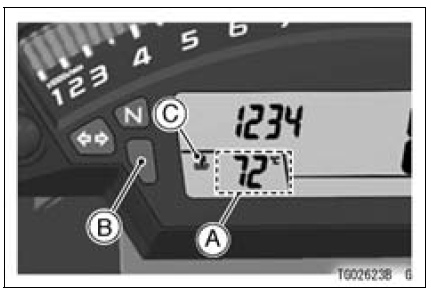
A. Coolant Temperature Meter
B. Warning Indicator Light (Red)
C. тАЬ тАЭ Symbol
тАЭ Symbol
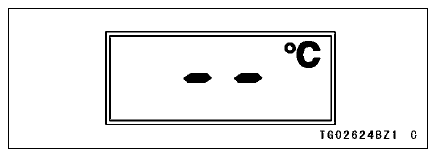
When the coolant temperature rises
to above 40┬░C (104┬░F), the numerical
value of the coolant temperature at the
present state is displayed.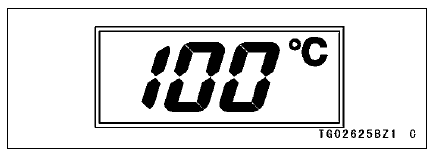
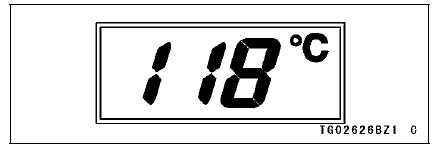
If the coolant temperature rises to
above 120┬░C (248┬░F), тАЬHIтАЭ is displayed
and starts blinking and the red warning
indicator light also goes on. This warns
the operator that the coolant temperature
is too high. Stop the engine and
check the coolant level in the reserve
tank after the engine cools down.
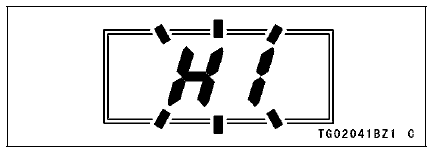
NOTICE
Do not let the engine continue running when the coolant temperature shows тАЬHIтАЭ. Prolonged engine operation will result in severe engine damage from overheating.
 Lap Counter/Coolant/Intake Air Temperature Meter
Lap Counter/Coolant/Intake Air Temperature Meter Intake Air Temperature Meter
Intake Air Temperature MeterWhat Am I Responsible For?
You are responsible for maintaining your vehicle according to the maintenance
schedule shown in this ownerтАЩs manual.
You are responsible for notifying your dealer immediately if there is a problem,
and you, as the owner, will need to authorize the dealer to inspect the unit.
You will be re ...
Exploded View
EO: Apply engine oil.
G: Apply grease.
L: Apply a non-permanent locking agent.
Lh: Left-hand Threads
MO: Apply molybdenum disulfide oil solution.
(mixture of the engine oil and molybdenum disulfide grease in a weight ratio
10:1)
R: Replacement Parts
S: Follow the specified t ...
Crankshaft Installation
NOTE
If the crankshaft is replaced with a new one, refer to
the Connecting Rod Big End Bearing/Crankshaft Main
Bearing Insert Selection in the Specifications.
NOTICE
If the crankshaft, bearing inserts, or crankcase
halves are replaced with new ones, select the bearing
inserts and check cleara ...